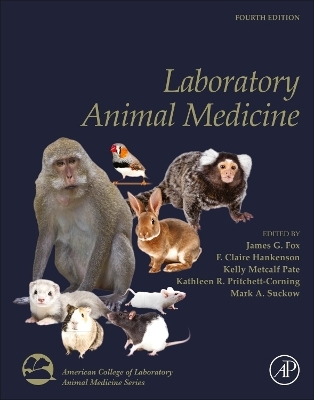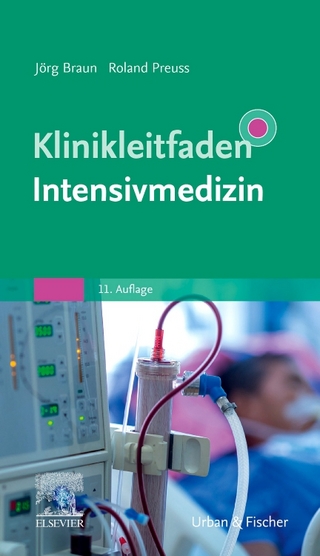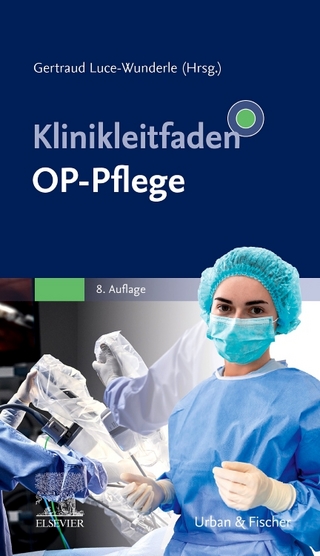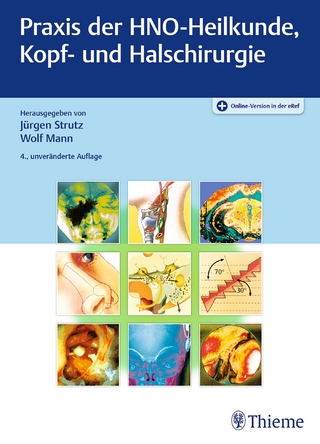
Laboratory Animal Medicine
Academic Press Inc (Verlag)
978-0-443-13721-1 (ISBN)
- Noch nicht erschienen (ca.
- Versandkostenfrei innerhalb Deutschlands
- Auch auf Rechnung
- Verfügbarkeit in der Filiale vor Ort prüfen
- Artikel merken
This new edition implements significant changes in the area. The Animal Welfare chapter moved to the beginning of the book, highlighting this subject’s importance, and was expanded to include Euthanasia, previously covered on the anesthesia chapter. Further updates include the addition of hamsters & gerbils to the Guinea Pig chapter, the woodchuck and chinchillas are now included in the other rodents’ chapter, instead of a dedicated chapter. The non-human primates’ chapter was separated into two chapters: New and Old-World primates. The zebra finch and quail chapters were combined and now also include pigeons. The chapter on genetically modified animals was expanded to include additional CRISPR manipulation and genetic monitoring in key model species. The Microbiome Research chapter was added to account for this key factor and its importance in research. A chapter on transplant medicine was added and also covers xenozoonoses.
The species-specific chapters are written at a level suitable for veterinarians and research scientists. Management chapters are suitable for program directors and facility managers both in academic and corporate settings. This edition continues the tradition of Laboratory Animal Medicine in setting the standards for the Laboratory Animal Science community, expanding, and updating the coverage following current and future practice in the area.
Prof. Fox obtained his Master of Science degree in Medical Microbiology at Stanford University and a Doctor in Veterinary Medicine at Colorado State University, Fort Collins. Dr. Fox is an Adjunct Professor at Tufts University School of Veterinary Medicine and the University of Pennsylvania, School of Veterinary Medicine. He is a Diplomate and a past president of the American College of Laboratory Animal Medicine, past president of the Massachusetts Society of Medical Research, past chairman of AAALAC Council, and past chairman of the NCCR/NIH Comparative Medicine Study Section. He also is an elected fellow of the Infectious Disease Society of America. In 2004 Professor Fox was elected to the Institute of Medicine of the National Academy of Sciences. Mark Suckow received his DVM from the University of Wisconsin in 1987 and subsequently completed a post-doctoral residency in laboratory animal medicine at the University of Michigan in 1990. He spent 8 years as a clinical laboratory animal veterinarian at Purdue University and then 17 years at the University of Notre Dame where he served as Director of the Freimann Life Science Center and later as Associate Vice President for Research Compliance. Prior to coming to the University of Kentucky, he was Professor of Veterinary Population Medicine and Director, Research Animal Resources at the University of Minnesota. With an interest in cancer models, biomaterials models, and vaccines, Dr. Suckow has functioned as an independent and collaborative investigator and has published in refereed journals and has seven issued patents related to vaccine adjuvants and cancer vaccines. He has written or edited over 20 books on topics related to research and laboratory animal medicine. Further, he served as the 2006 President of the American Association for Laboratory Animal Science and the 2011 President of the American Society of Laboratory Animal Practitioners; and currently he serves on the AVMA Council on Research and is a member of the Council on Accreditation of AAALAC, International. Kate received her B.S. and her D.V.M. from Washington State University and completed her post-doctoral training in laboratory animal medicine at the University of Washington. She became a diplomate of the American College of Laboratory Animal Medicine in 2002. In 2003, Kate joined Charles River Laboratories and was the Director of Research and Professional Services until 2013, when she joined Harvard University’s Faculty of Arts and Sciences. She has over 30 peer-reviewed publications and has lectured on laboratory animal medicine and care in more than 10 countries Kelly Metcalf Pate is Director of the Division of Comparative Medicine and the Dorothy W. Poitras Associate Professor of Biological Engineering at Massachusetts Institute of Technology. She is a veterinarian-scientist with expertise in virology, platelet immunology and the development and refinement of animal models of human disease. She received her B.A. through the University Professors Program at Boston University, obtained her D.V.M. from Purdue University College of Veterinary Medicine, and pursued both veterinary specialty training in laboratory animal medicine and her Ph.D. at Johns Hopkins School of Medicine. Prior to joining M.I.T., she was faculty at Johns Hopkins School of Medicine, where she oversaw the research training programs for veterinarians and veterinary students and founded the J.H.U. Summer Veterinary Scholars Research Program and the summer Laboratory Animal Fellowship. Metcalf Pate serves on multiple national committees, including on the Scientific Advisory Committee for the American Association of Laboratory Animal Science (AALAS), and as an Ad Hoc Specialist for AAALAC International. Dr. F. Claire Hankenson is the Associate Vice Provost for Research and Executive Director of University Laboratory Animal Resources at the University of Pennsylvania. She serves as the Attending Veterinarian and holds a faculty position as Professor of Laboratory Animal Medicine within the Department of Pathobiology at the School of Veterinary Medicine. Dr. Hankenson obtained her veterinary degree from Purdue University, completed her graduate work and residency at the University of Washington and became certified as a Diplomate of the American College of Laboratory Animal Medicine (ACLAM) in 2002. Dr. Hankenson has been active on committees within AALAS, including the AALAS Editorial Review Board, has served on the Executive Board for ACLAM and as ACLAM President in 2015, and is an ad-hoc specialist with AAALAC. Currently, she serves as the Chair of the Board of Directors for Public Responsibility in Medicine & Research (PRIM&R), a nonprofit organization that provides education and professional resources to scientific and research oversight communities for both animal and human patients.
1. Laboratory Animal Medicine Historical Perspectives
2. Animal Welfare (incl euthanasia)
3. Laws, Regulations, and Policies Affecting the Use of Laboratory Animals
4. Biology and Diseases of Mice
5. Biology and Diseases of Rats
6. Guinea Pigs, Hamsters & Gerbils
7. Biology and Diseases of Other Rodents
8. Biology and Diseases of Rabbits
9. Microbiological Quality Control for Laboratory Rodents and Lagomorphs
10. Biology and Diseases of Dogs
11. Biology and Diseases of Cats
12. Biology and Diseases of Ferrets
13. Biology and Diseases of Ruminants
14. Biology and Diseases of Swine
15. New World Primates
16. Old World Primates
17. The Biology and Management of the Zebrafish and Other Fish
18. Other Fish
19. Biology and Diseases of Amphibians
20. Biology and Diseases of Reptiles
21. Biology and Diseases of Avian Models in Research
22. Animal Models in Biomedical Research
23. Techniques of Experimentation
24. Pre-anesthesia, Anesthesia, Analgesia
25. Factors that Influence Animal Research
26. Design and Management of Research Facilities & Lab Animal Programs
27. Working Safely with Experimental Animals Exposed to Biohazards
28. Zoonoses
29. Genetically Modified Animals
30. Gnotobiotics
31. Microbiome Research
32. Infectious Disease Research and Biocontainment
33. Transplant Medicine
33. Program Management
34. Lab Animal Behavior
| Erscheint lt. Verlag | 2.10.2025 |
|---|---|
| Reihe/Serie | American College of Laboratory Animal Medicine |
| Verlagsort | San Diego |
| Sprache | englisch |
| Maße | 216 x 276 mm |
| Themenwelt | Medizin / Pharmazie ► Medizinische Fachgebiete ► Chirurgie |
| Sozialwissenschaften ► Soziologie | |
| Veterinärmedizin ► Klinische Fächer ► Chirurgie | |
| ISBN-10 | 0-443-13721-8 / 0443137218 |
| ISBN-13 | 978-0-443-13721-1 / 9780443137211 |
| Zustand | Neuware |
| Informationen gemäß Produktsicherheitsverordnung (GPSR) | |
| Haben Sie eine Frage zum Produkt? |
aus dem Bereich


